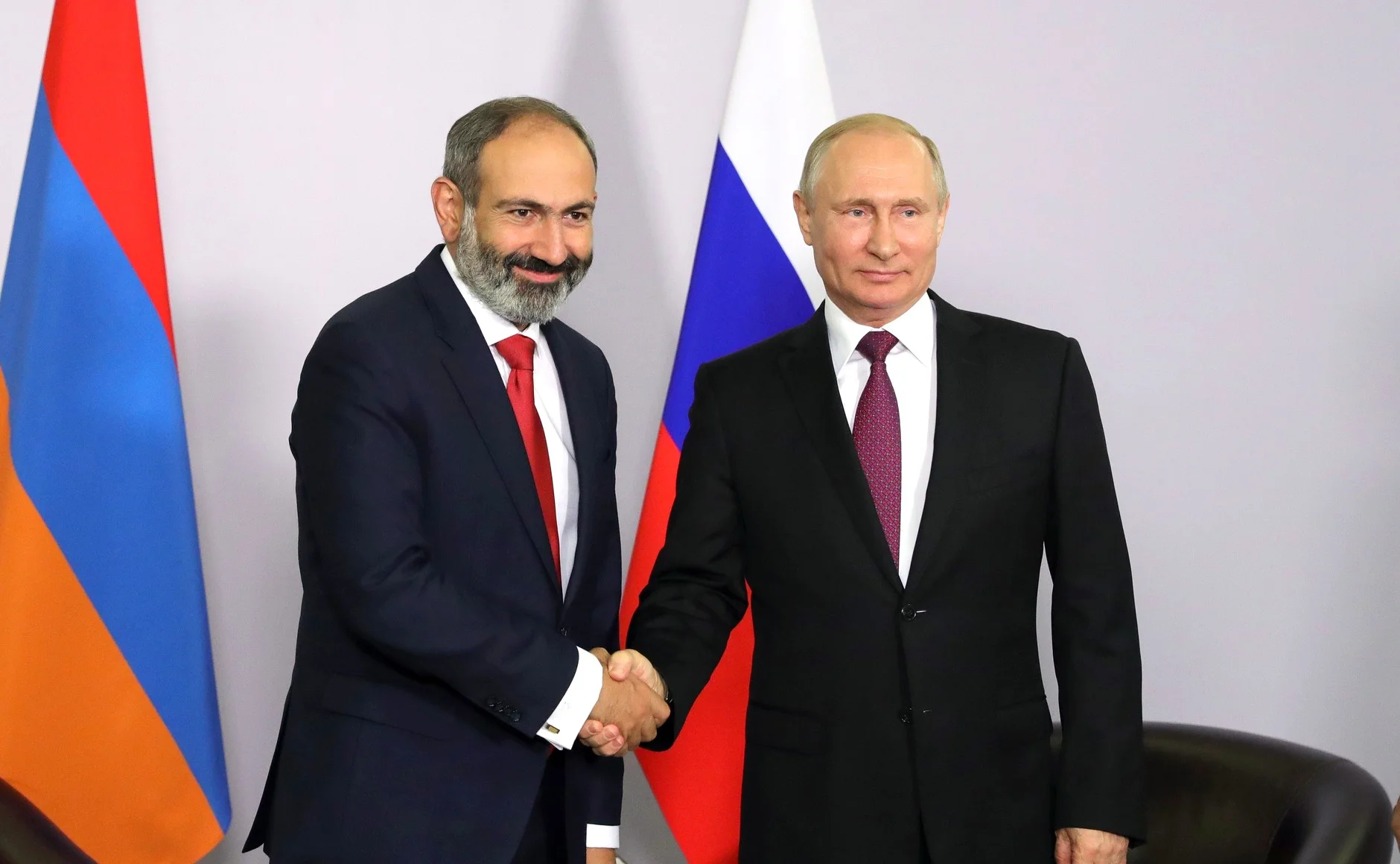Newly Appointed Armenian Prime Minister Rides Tide of Democracy
Armenian Prime Minister Nikol Pashinyan pictured meeting with Russian President Vladimir Putin in May 2018 (Wikimedia Commons).
Nikol Pashinyan was officially appointed Armenia’s prime minister on January 14 following December snap elections that resulted in a “revolutionary majority” of 70.4 percent of the vote for the ex-journalist and anti-corruption reformist. Pashiyan signed his appointment before the convening of the parliament’s first session of the year, instilling a sense of optimism in the wake of April’s turbulent Velvet Revolution.
The nonviolent revolution was characterized by mass public protests and civic unrest against ex-President and then-newly-elected Prime Minister Serzh Sargsyan. The protests brought an end to Sargsyan and his Republican Party’s (HHK) more than ten years of power. In an uncharacteristically fluid transition, Sargsyan stepped down, stating, “The protests in the streets are against my tenure. I comply with your demand.”
In the interim, lawmakers placed into power the fervent and prominent anti-establishment demonstrator Nikol Pashinyan, who resigned only months later to force parliamentary snap elections with the aim of earning a parliamentary majority.
The December elections returned Pashinyan to his role as prime minister but saw a voter turnout 12 percent lower than in previous parliamentary elections. Pashinyan chalked up the underwhelming statistic to prior voting mechanisms under the rule of the HHK that “have not been used and cannot be used now.”
Pashinyan has continuously made evident his divergence from historical structures of Armenian political administration. He has assured that “the authorities will not attempt to take away from the people’s hands the opportunity for forming power.”
That being said, there has been notable controversy surrounding both his previous and present terms as prime minister. Pashinyan inherits a country in the geopolitical spotlight caught between European and Russian influence. Many call into question the foreign policy aptitude of a political newcomer like Pashinyan and doubt his ability to invigorate a perpetually stagnant domestic economy with no prior experience in such matters. Furthermore, during Pashinyan’s temporary tenure as prime minister, widespread accounts of corruption, embezzlement, tax evasion, and even attempted murder from members of the previous administration came to light.
Pashinyan has attempted to address these potential shortcomings. One of his first actions as elected prime minister was traveling to Georgia to discuss bilateral relations with Georgian Prime Minister Mamuka Bakhtadze and meet with local Armenians, solidifying regional ties between the two countries. Furthermore, Pashinyan requested explicit support from EU leaders to rebuild the Armenian economy at a NATO summit in July. At home, Pashinyan has pushed to root out corruption and has arrested a former member of Parliament and other government officials.
Given that his administration has only just begun, the long-term effects of Pashinyan’s Velvet Revolution remain unclear, but already he has taken an initial step toward democracy in the Caucasian country.

